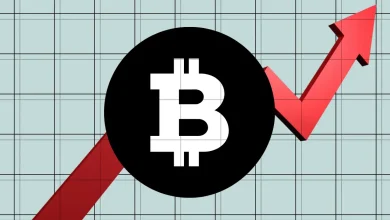
Bitcoin's price is at a critical juncture, facing key resistance levels amid market volatility and anticipation of the FOMC announcement.
Historical market analysis, including a 150-year-old chart, suggests a potential "good times" period in 2026.
The Federal Reserve's interest rate decisions and economic uncertainty are significantly influencing Bitcoin's short-term movements.
Bitcoin is at a crucial point, testing key resistance levels that could determine its next big move. In past bull markets, Bitcoin has often broken through these levels, consolidated, and climbed even higher.
Right now, it’s hovering around $85,000, with increased market volatility ahead of the FOMC announcement. Many traders worry that if the Federal Reserve signals higher interest rates for longer, the market could face a downturn.
A 150-Year-Old Chart Predicts ‘Good Times’ in 2026
Investor and entrepreneur Lark Davis recently shared a 150-year-old market cycle chart created by an Ohio farmer. Surprisingly, this chart has been accurate in the past—it even signaled the 2008 financial crisis, advising people to exit the market in 2007.
The chart divides the market into phases like “good times,” “hard times,” and periods of financial panic. It also highlights specific years as ideal for taking profits. According to its latest prediction, 2026 will be a “year of good times,” making it a strong potential sell window for Bitcoin.
This raises an important question: Will this market cycle last until 2026, and could Bitcoin hit new all-time highs next year? Davis acknowledges that only time will tell.
Is the Bull Run Losing Steam? Experts Weigh In
While some analysts remain bullish, others believe Bitcoin’s momentum may be fading. Ki Young Ju, CEO of CryptoQuant, suggests that the bull run could be over, predicting a slowdown or decline for the next 6 to 12 months based on recent on-chain data.
However, many still expect Bitcoin to reach new all-time highs by June 2025. A rising wedge pattern on Bitcoin’s chart is nearing its breaking point. If Bitcoin breaks out, prices could surge. But if it’s rejected, we could see a deeper pullback.
$1M By 2029?
Since hitting a new high in mid-January, Bitcoin has fallen 30%. While this might seem alarming, it’s actually a common pattern in bull markets. In past cycles, Bitcoin has dropped as much as 55% before hitting new all-time highs.
Despite short-term uncertainty, Bitwise CIO Matt Hougan predicts that Bitcoin could hit $1 million by 2029. He points to Bitcoin’s history of rebounding after dips, calling it a “dip then rip” trend that could repeat itself.
Market Braces for the FOMC Decision
At the moment, Bitcoin is trading around $83,500, showing little movement as the market awaits tomorrow’s FOMC meeting. The Federal Reserve is expected to keep interest rates unchanged at 4.25%-4.5%, as economic uncertainty lingers.
For now, the Fed is playing it safe, offering minimal guidance on future rate cuts. This lack of clarity has left markets uncertain. However, prediction market Polymarket is forecasting a 100% chance of a rate cut in May, which could give Bitcoin and the crypto market a boost.
Never Miss a Beat in the Crypto World!
Stay ahead with breaking news, expert analysis, and real-time updates on the latest trends in Bitcoin, altcoins, DeFi, NFTs, and more.
FAQs
If interest rates remain unchanged, Bitcoin may see stability, but hints of future hikes could trigger market volatility.
Bitwise CIO Matt Hougan predicts Bitcoin could hit $1M by 2029, citing historical growth patterns and institutional adoption.






